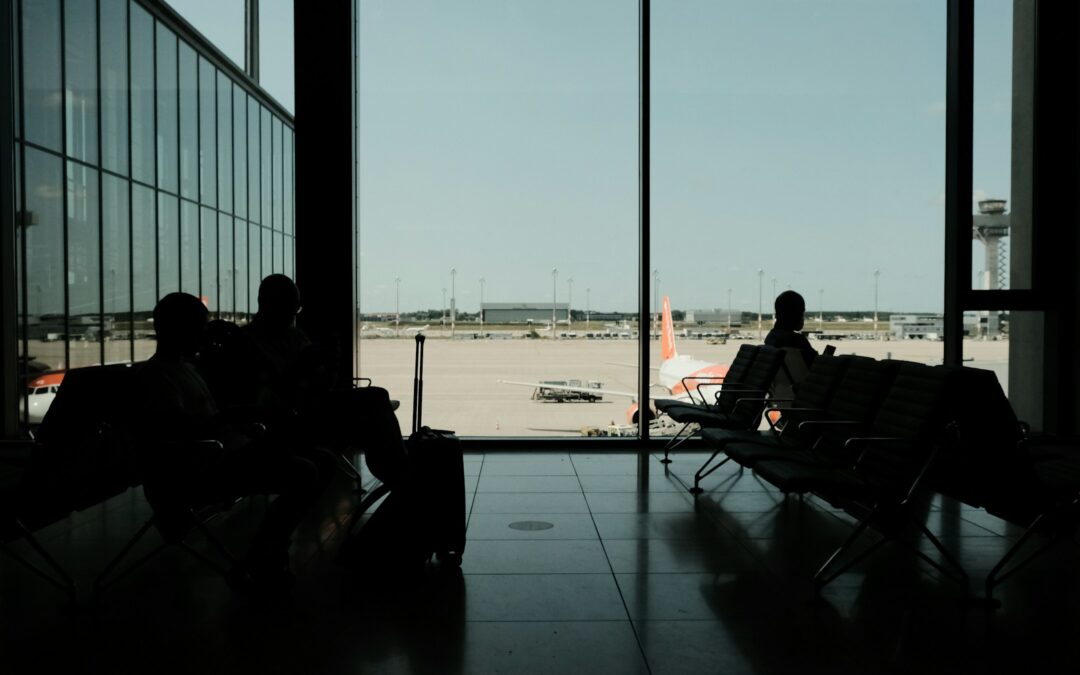A serious cyber attack on the Berlin-based airline ticket wholesaler Aerticket has Travel industry in turmoil. The company, a leading provider of innovative products for the travel industry in Europe, was the target of a hacker attack on a Sunday. This incident throws a spotlight on the Cybersecurity in the travel sector.
The attack led to significant technical failures of the "Cockpit" booking system. Aerticket, with around 850 employees at 40 locations worldwide, supplies travel agencies, Tour operator and online portals with flight tickets from around 170 different airlines. The disruption to the system is so severe that it does not appear possible to restore it within a few days.
In response to the attack, Aerticket is developing an alternative booking platform called "Cockpit Light". This should restore the functionality for the connected agencies in the coming days. An exact timetable for the complete restoration of the original Cockpit system has not yet been announced.
This incident is reminiscent of an earlier data protection incident at Aerticket in 2016, when a security breach led to the personal data of millions of air travelers being accessible for several years. The current situation underlines the growing importance of Cybersecurity in the Travel industry.
Important findings
- Aerticket was the victim of a serious cyber attack
- The "Cockpit" booking system is severely impaired
- A "Cockpit Light" emergency platform is under development
- Full system recovery takes longer than expected
- The incident emphasizes the importance of Cybersecurity in the Travel industry
What happened?
A serious Cyber attack recently shook the travel industry. The airline ticket wholesaler Aerticket was the victim of Computer crimewhich severely impacted the company and its customers.
Overview of the cyber attack
Aerticket, a leader in innovative products for the travel industry, suffered a massive attack on its Online booking systems. The incident paralyzed the "Cockpit" booking system and forced the company to react quickly.
The attack occurred on a Sunday and led to significant technical failures. It remains unclear whether it was a Data theft or whether ransomware was involved. Aerticket has not yet published any details about the attack method.
Chronological sequence of events
After the attack, Aerticket worked feverishly on solutions. The company developed an alternative booking platform called "Cockpit Light" to enable agencies to resume operations quickly.
- Sunday: Cyber attack on Aerticket
- Monday: Announcement of the incident
- Follow-up days: Development of "Cockpit Light"
- Coming days: Planned introduction of the emergency solution
This incident underscores the growing threat posed by Computer crime in the travel industry. It shows how vulnerable even established companies are to cyberattacks and the importance of robust security measures for Online booking systems are.
Who is affected?
The Cyber attack on the airline ticket wholesaler Aerticket has far-reaching consequences for the travel industry. The effects affect both customers and partner companies and Tour operator.
Customers and their bookings
Millions of travelers are affected by this incident. Aerticket issues around 6 million tickets a year, of which an estimated 1.5 million were exposed through the security breach. Personal data such as names, addresses and sometimes even bank details were disclosed.
The security vulnerability had existed since the end of 2011, meaning that customer data was potentially at risk for over 11 years. This underlines the urgency for improved security measures in the digital age.
Partner companies and tour operators
Aerticket works with around 14,500 major customers, including many travel agencies and online travel portals. These Tour operator must now deal with the consequences of the attack and restore the trust of their customers.
| Group concerned | Quantity | Effects |
|---|---|---|
| Travelers | Approx. 1.5 million | Data leak of personal information |
| Partner companies | 14.500 | Loss of trust, business interruptions |
| Tour operator | Hundreds | Damage to image, customer concerns |
This incident highlights the growing threat of digital attacks in the travel industry. Tour operators need to rethink their cyber security strategies and implement more robust Protective measures to maintain the trust of their customers and prevent future attacks.
Technical details of the attack
The cyber attack on the Berlin-based airline ticket wholesaler Aerticket reveals the growing threat to Online booking systems. The Hacker activities were aimed at the central "Cockpit" system, which is essential for processing bookings and reservations.
Type of cyber attack
Although the exact method of attack is still unclear, statistics suggest possible scenarios. 90% of cyberattacks use phishing techniques to gain access to sensitive data. Ransomware attacks have increased by 300% in recent years, underlining the urgency for companies in the travel and ticketing industry.
Affected systems and data
Aerticket's "Cockpit" booking system has been severely affected. It could take a long time to restore the system, which indicates significant damage. It remains unclear whether customer data was encrypted or stolen. Aerticket is working on an alternative platform called "Cockpit Light" to provide agencies with a temporary solution.
- Over 80% of German companies have already been victims of cyber attacks
- The average cost of an attack in the travel industry is around 4 million euros
- The average response time to a cyberattack is 200 days
These figures highlight the need for robust security measures for online booking systems and the urgency of responding quickly to Hacker activities in the travel industry.
Reactions of the affected airline ticket wholesalers
The Airline ticket wholesaler attack has shaken the industry. The companies affected are responding with official statements and Protective measuresin order to Customer trust to regain.
Official statements
In their statements, the wholesalers emphasize the seriousness of the incident. They assure us that they are working closely with the authorities to investigate the attack. A spokesperson explains: "We take the protection of customer data very seriously and are working around the clock to solve the problem."
Damage limitation measures
The companies have extensive Protective measures seized:
- Immediate shutdown of affected systems
- Establishment of crisis teams
- Increased monitoring of the IT infrastructure
- Training for employees to detect cyber attacks
One wholesaler reports: "We have significantly strengthened our security measures. This includes the introduction of two-factor authentication for all user accounts."
The industry is determined to learn from the incident. One expert explains: "This attack underlines the need for continuous investment in cyber security. This is the only way we can secure the trust of our customers in the long term."
Safety and protective measures
In times of increasing cybercrime, it is important that both customers and companies strengthen their cyber security. The recent attacks on airline ticket wholesalers show how urgently protective measures are needed.
Tips for customers on hedging
Customers should be particularly vigilant to protect their personal data:
- Use strong, unique passwords for each account
- Activate two-factor authentication
- Be careful with unexpected e-mails or text messages with links
- Check your bank statements regularly for suspicious activity
Recommendations for companies
Companies in the travel industry need to strengthen their cyber security:
- Invest in modern security systems and software
- Train employees regularly in cyber security
- Carry out regular safety audits
- Implement data encryption for sensitive information
- Develop an emergency plan for cyber attacks
A proactive approach to cyber security is crucial. By implementing these protective measures, customers and companies can work together to help make the digital landscape more secure and protect themselves from future attacks.
Overview of the cybersecurity landscape
Cybersecurity is facing ever-increasing challenges. Digital threats are increasing and becoming ever more sophisticated. A look at current trends shows the urgency of effective protective measures.
Current trends in cyber attacks
In 2023, ransomware attacks generated a ransom of 1.1 billion US dollars worldwide. Small and medium-sized companies in particular are often inadequately protected. The number of unreported cases could be even higher. DDoS attacks also increased sharply in 2024.

Growing threats in the travel sector
The travel industry is increasingly the target of cyber attacks. The focus is on booking systems and customer databases. The networking of the sector is creating new areas of attack. Companies need to strengthen their cyber security in order to protect customers.
| Attack method | Description | Protective measure |
|---|---|---|
| Phishing | Deceptively real e-mails for Data theft | Employee training, e-mail filters |
| Ransomware | Encryption of data, blackmail | Backups, endpoint protection |
| DDoS attacks | Overloading of systems | Network segmentation, firewalls |
Companies need to invest in cyber security. Multi-factor authentication and zero-trust concepts offer protection. Regular security audits and employee training are essential in order to digital threats to ward off.
Consequences of the attack for the market
The Airline ticket wholesaler attack has shaken the travel industry. Aerticket, a leading company with 850 employees at 40 locations worldwide, is at the center of this incident. The company supplies travel agencies, tour operators and online portals with flight tickets from around 170 airlines.
Effects on flight ticket prices
The cyber attack has paralyzed the "Cockpit" booking system. This could lead to bottlenecks in ticket availability and drive up prices in the short term. Aerticket is working on an alternative platform "Cockpit Light" in order to resume operations. Until the system is fully restored, the price situation remains uncertain.
Market changes in travel
The incident could have far-reaching consequences for the travel industry. Travel agencies and tour operators could be forced to enter into new partnerships or strengthen their own security measures. Consumer confidence could be shaken, especially in light of previous data breaches such as in 2016, when millions of air travelers' personal details were accessible online for years.
The exact nature of the attack remains unclear, increasing uncertainty in the industry. This situation could lead to increased investment in cyber security and possibly stricter regulations to prevent similar incidents in the future.
Media coverage of the incident
The Airline ticket wholesaler attack attracted a great deal of attention in the media. German news portals reported extensively on the impact on the travel industry and air travel.
German media landscape
Many newspapers and online platforms quickly picked up on the news. They reported on the cancellation of 1% of the flights planned worldwide and the problems at German airports. Berlin's BER airport, Hamburg and several airports in Baden-Württemberg and North Rhine-Westphalia were affected.

International reporting
The incident also caused a stir internationally. Media companies such as Sky News and Canal+ reported temporary program interruptions. In New Zealand, the problems led to credit card payment failures. Australian media were the first to report on the disruptions, which pointed to the timing of the software updates.
IT security expert Troy Hunt described the incident as one of the biggest IT failures of all time.
The reporting highlighted the global impact of the attack on the travel industry and raised awareness of cyber security risks in this sector.
Outlook for the future: What's next?
Following the cyber attack on airline ticket wholesalers, the travel industry is facing major challenges. The focus is shifting to cyber security and companies are planning comprehensive improvements.
Planned improvements in the security area
Many companies in the travel industry are increasingly relying on cloud solutions. These offer a higher level of security than conventional IT systems. Large cloud providers invest heavily in security, which is almost impossible for medium-sized companies to achieve.
One innovative approach is the introduction of early warning systems. The "Südwestfalen Cloud", for example, is developing a technology for systematically monitoring data movements. This allows digital anomalies to be detected at an early stage.
Expectations of the industry
The travel industry is expected to significantly strengthen its cyber security. Experts are calling for more investment in security technologies and training for employees. At the same time, companies need to deal with incidents more transparently and protect customers better.
Implementing these measures poses financial challenges for many companies. Industry associations are therefore calling for government support to improve cyber security in the travel industry.
Conclusion: Lessons from the attack
The cyber attack on the airline ticket wholesaler shows how important cyber security is in the travel industry. The events remind us that protective measures need to be constantly improved. From 2025, electronic invoicing will be mandatory for almost all companies in Germany. This increases the need for robust security systems.
Important findings for consumers
Travelers should protect their personal data better. Use secure passwords and check your accounts regularly. The new NIS-2 Directivewhich comes into force in October 2024, will strengthen cyber security. Nevertheless, vigilance and careful handling of sensitive information remain important.
Strengthening cyber resilience in the industry
The travel industry needs to better secure its IT systems. Penetration tests are essential for this. The Cyber Security Month in October offers a good opportunity to raise awareness of IT security. Companies should invest in Security Operation Centers (SOCs) to detect and ward off cyber attacks at an early stage.
This incident shows that cyber security is a shared responsibility. Only through cooperation between companies, consumers and authorities can we protect the Digital security in the travel industry.
